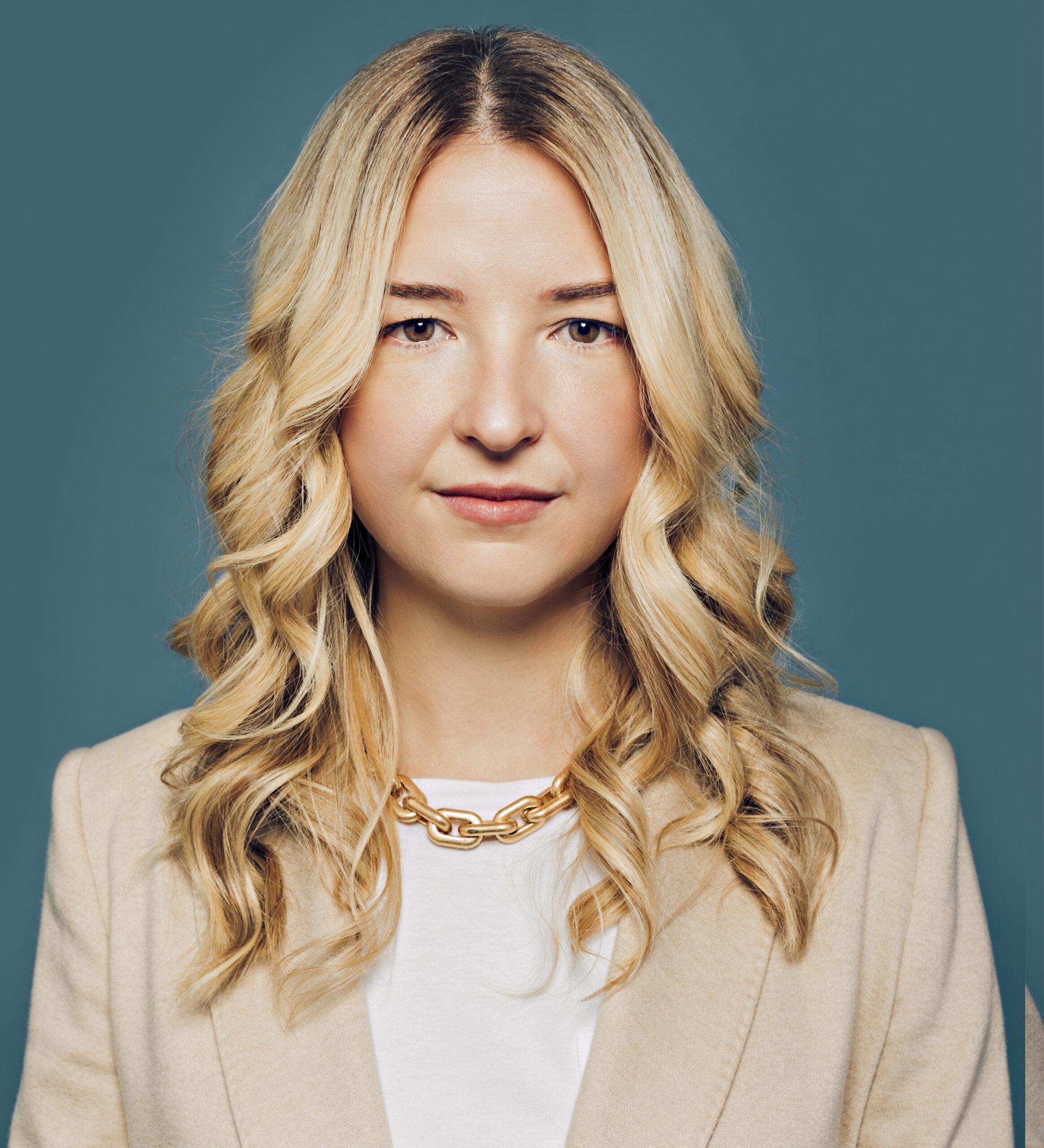#The Power List: Anna Sainsbury

Table of Contents

April 1, 2024
This year’s Super Bowl was the most-watched television event since the moon landing, thanks in large part to an American pop star named Taylor Swift. It was also the most bet-on Super Bowl in history, thanks in large part to a Canadian tech entrepreneur named Anna Sainsbury. Online sports gambling may be the only thing that has blown up bigger than Swiftmania in recent years—up from US$47 million in 2018 to US$7.26 billion in 2023 in the U.S. alone, and predicted to nearly double that over the next four years. And Sainsbury’s GeoComply, a geolocation program that enables gambling platforms to enforce out-of-state betting laws, is the technology underpinning the whole process. Her company achieved a billion-dollar valuation in 2021. Now she’s setting her sights on an even bigger mission: to eradicate cyberfraud from every corner of the internet.
GeoComply’s success story traces back to a 2009 gambling industry conference in Macau, where Sainsbury met her future husband and co-founder, David Briggs, who’d helped bring Ladbrokes, the century-old British bookmaker, into the digital age. Sainsbury, who studied interior design and marketing at the British Columbia Institute of Technology, was working for a technical testing company that specialized in online gaming. Theirs was a courtship made in computer-nerd heaven: they talked about the pending legalization of online gambling in the U.S. The rules would forbid virtual betting across state lines but would be difficult to enforce in a borderless digital world, providing a huge opportunity for whoever built a program that could accurately locate devices. Basic IP address technology was too easy to skirt, so the new couple got to work on a more sophisticated solution. They launched GeoComply in Las Vegas in 2011.
The company’s digital location verification process considers hundreds of data points from a device to ensure pinpoint accuracy: IP address as well as cellphone tower data, Wi-Fi positioning and even environmental factors, which are different in California than they are in Alaska. The software can detect location spoofers, tools only hardcore hacker types knew about when Sainsbury and Briggs started their company 13 years ago. (GeoComply relocated to Vancouver in 2016 to take advantage of the stronger talent pool.)
The company had its first big test in 2013, when New Jersey became the first state outside Nevada to legalize online gambling. Sainsbury and Briggs signed on 13 gambling operators and worked around the clock, even renting a house near Atlantic City for a front-row seat to their first major victory. The market was still limited, but they had passed the proof-of-concept stage with flying colours. In 2018, when the U.S. Supreme Court opened up sports betting to the masses, GeoComply was ready. Today, it’s installed in 400 million devices worldwide, including in Ontario and all 29 U.S. states that have since allowed online sports betting. Their client list includes the biggest fish: FanDuel, DraftKings, BetMGM, Caesars Entertainment and ESPN Bet, which together service more than 90 per cent of U.S. sports betting and would, without Sainsbury’s services, face hefty fines and even jail time for illegal bets placed on their platforms.

In 2022, an institutional investment from Blackstone Growth secured GeoComply’s unicorn status. The company now has more than 600 employees at offices in five countries, along with big plans to leverage its compliance technology toward cybersecurity in banking, media streamers and cryptocurrency. The same location verification technology GeoComply has used to nab out-of-state gamblers now targets internet scammers of all stripes. Last year, regulators laid US$1.5 billion in fines to online cons, and two-thirds of the fines came down to inaccurate geographic information, Sainsbury has said. Much of the world’s cybercrime is based in China, Russia and Nigeria, so the hackers stealing your banking information or launching ransomware attacks against Canadian organizations probably aren’t where they say they are either.
Putting up fences in the virtual realm may run counter to the cyberpunk ethos upon which the World Wide Web was founded. But Sainsbury believes that kind of thinking is as relevant to the 2024 internet as a Grumpy Cat video. The stakes are high: fraud on the dark web is a key funding stream for child exploitation, human trafficking and terrorism. Bad actors aren’t going anywhere, but they may find themselves on the receiving end of a block notification. In a recent interview at the NYSE, Sainsbury said her company aims to instill confidence in every online interaction. It’s a gargantuan undertaking—best handled one pinpoint-accurate location confirmation at a time.
This story appears in the May issue of Maclean’s. You can buy the issue here or subscribe to the magazine here.
If you liked the article, do not forget to share it with your friends. Follow us on Google News too, click on the star and choose us from your favorites.
If you want to read more News articles, you can visit our General category.




